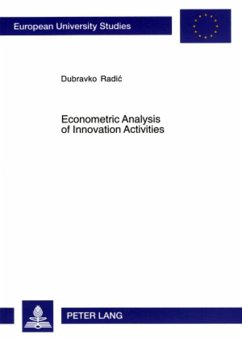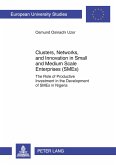This study is concerned with the econometric analysis of innovation activities in Germany. Using microeconometric models and an unique linked employer-employee dataset provided by the German Federal Employment Office, it presents new evidence on a variety of issues ranging from the determinants of innovations to their impact on labor demand. After a brief introduction into the economics of innovation and a discussion of econometric issues such as self selection and endogeneity, the second part of this study addresses the role of public subsidies and organizational changes within establishments in the innovation process. In the third part the book analyzes whether technological and organizational changes are skill biased in favor of high skilled employees and whether they discriminate against older employees.
Bitte wählen Sie Ihr Anliegen aus.
Rechnungen
Retourenschein anfordern
Bestellstatus
Storno








